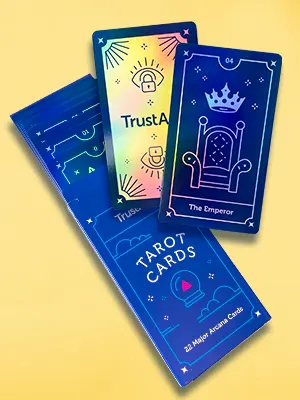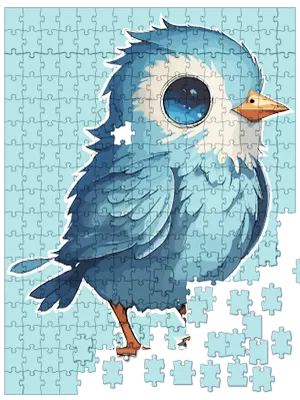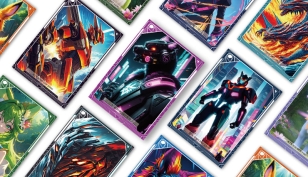And is there still room in the market for indie TCG designers to carve out a profitable niche? (Hint: yes!)
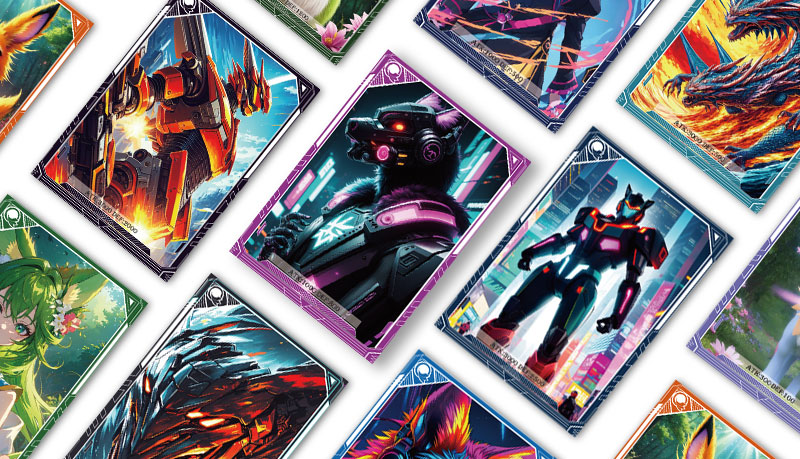
Trading card games (TCGs) have captivated millions of players around the world with their blend of strategy, collectability, and community. From the first booster pack of Magic: The Gathering to the latest digital TCGs, these games have evolved significantly, influencing gaming culture and industry trends. The journey from a niche hobby to a mainstream phenomenon reflects the creativity and passion of designers, players, and publishers alike.
Origins of trading card games
Magic: The Gathering (1993)
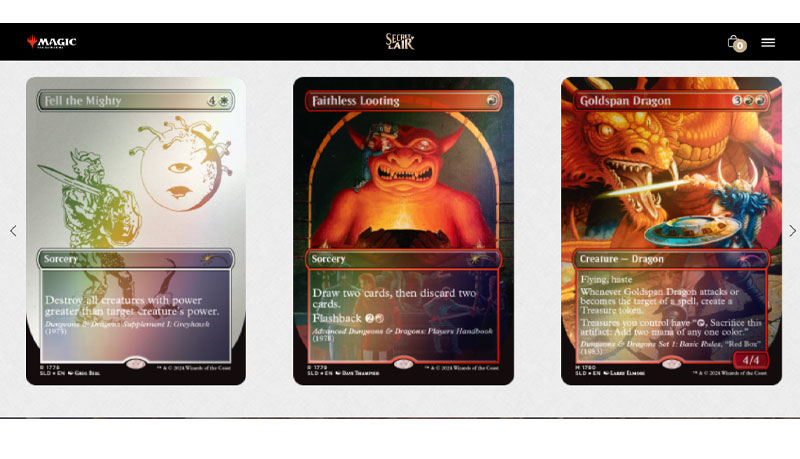
Screenshot from Magic: The Gathering
Magic: The Gathering (MTG) is widely recognized as the first modern trading card game. Created by Richard Garfield and published by Wizards of the Coast, MTG introduced players to a game where they could collect cards, build their own decks, and engage in strategic battles against opponents. The game's combination of fantasy themes, deep strategy, and endless variability set the stage for the TCG industry. Today, MTG remains a dominant force, with millions of players worldwide and a thriving professional scene. Its success led to the establishment of a professional circuit, the Magic Pro Tour, and numerous local tournaments, fostering a competitive environment that continues to thrive.
Yu-Gi-Oh! (1999)
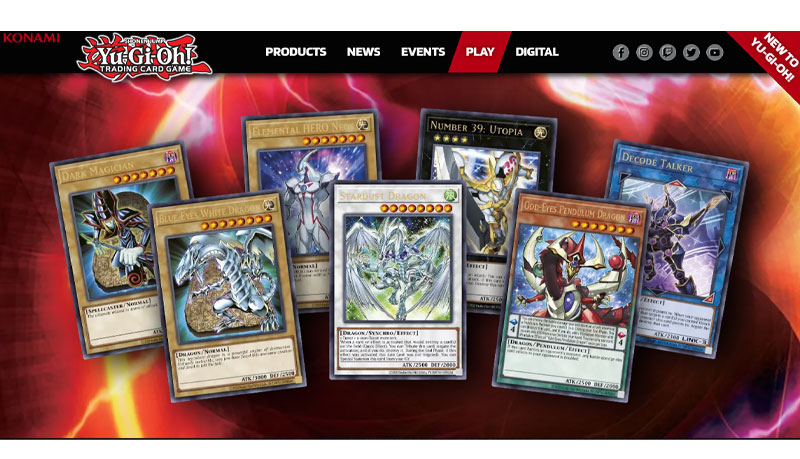
Screenshot from Yu-Gi-Oh!
Originally a manga series created by Kazuki Takahashi, Yu-Gi-Oh! quickly expanded into a highly successful trading card game. The manga's popularity, along with the accompanying anime series, helped catapult the TCG to international fame. Konami, the publisher, developed a game that emphasized dueling and strategic card play, capturing the imagination of a young audience. Yu-Gi-Oh! has maintained its popularity over the years, continuously releasing new sets and supporting competitive play. The game's unique mechanics, such as summoning powerful monsters and activating spell and trap cards, offer a different strategic depth compared to other TCGs.
Pokémon trading card game (1996)
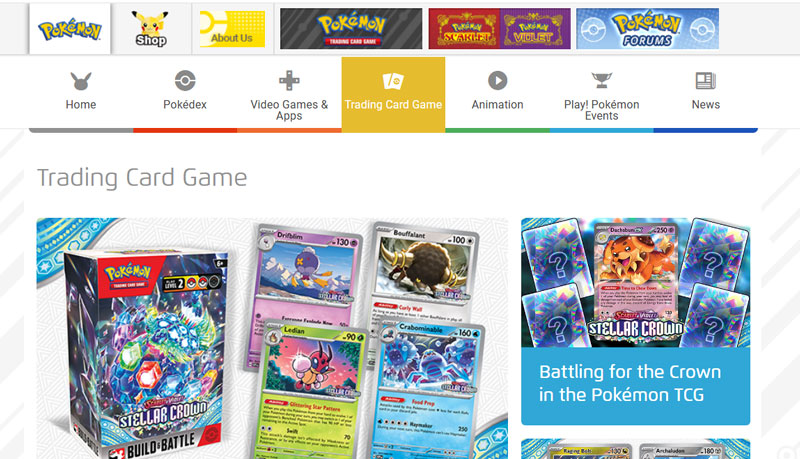
Screenshot from Pokémon
The Pokémon TCG, created by Media Factory in Japan and later published by Wizards of the Coast in the US, capitalized on the global Pokémon phenomenon. Players collect Pokémon cards, build decks around their favorite characters, and battle against friends. The game's accessible mechanics and connection to the beloved Pokémon franchise have ensured its enduring success. The Pokémon TCG has become a staple in both casual and competitive play, with an active community and frequent tournaments. The integration of card trading, collecting, and battling aligns perfectly with the core themes of the Pokémon universe, making it appealing to fans of all ages.
Main creators in the TCG industry today
Wizards of the Coast

Wizards of the Coast, now a subsidiary of Hasbro, is a powerhouse in the TCG industry. Magic: The Gathering remains its flagship product, with new sets released multiple times a year, each introducing new mechanics and expanding the game's lore. Wizards of the Coast has also embraced digital platforms with Magic: The Gathering Arena, bringing the classic game to a wider online audience. The company's ability to innovate while maintaining the core essence of MTG has allowed it to stay relevant in a competitive market. Additionally, their organized play initiatives, including Friday Night Magic and Grand Prix events, foster a robust player community.
Konami

Konami's Yu-Gi-Oh! TCG continues to be a major player in the market. The company regularly updates the game with new cards and mechanics, keeping it fresh for longtime players while attracting new fans. The game's anime and manga support its popularity, creating a continuous cycle of engagement across multiple media. Konami's strategic partnerships and marketing efforts have helped Yu-Gi-Oh! maintain a strong presence in both physical and digital formats, with the Yu-Gi-Oh! Duel Links app introducing the game to a new generation of players.
The Pokémon Company

The Pokémon Company, a collaboration between Nintendo, Game Freak, and Creatures, oversees the Pokémon TCG. The game's tie-in with the globally popular Pokémon franchise guarantees a steady influx of new players. The Pokémon Company supports both casual play and competitive scenes, with large-scale events and world championships. Their focus on community events, such as Pokémon Leagues and pre-release tournaments, helps cultivate a welcoming environment for new and experienced players alike. The ongoing release of new expansions that align with the latest video game releases ensures the TCG remains relevant and exciting.
Fantasy Flight Games
Fantasy Flight Games has made a name for itself with innovative card games such as Android: Netrunner and Legend of the Five Rings. Although Netrunner has been discontinued, its impact on the industry is notable for its unique mechanics and deep strategic gameplay. Fantasy Flight continues to innovate, offering games that appeal to niche markets and dedicated player bases. Their Living Card Game (LCG) model, which replaces random booster packs with fixed expansions, provides a different approach to card game design and appeals to players who prefer a more predictable and collectible experience.
Self-publishing pioneers in the TCG industry
James Ernest and Cheapass Games
James Ernest founded Cheapass Games, a company known for its innovative and budget-friendly approach to game publishing. Although not exclusively focused on TCGs, Cheapass Games is notable for its unique business model, where players could use components from other games to play Cheapass titles. Ernest's success with self-publishing set an example for indie designers on how to enter the market with limited resources.
George Vasilakos and Zombicide
George Vasilakos co-created the popular tabletop game Zombicide, which started as a Kickstarter project before becoming a massive success. While not a TCG, Zombicide's success story is relevant for TCG designers because it demonstrates the potential of crowdfunding and self-publishing to launch a new game into the mainstream. Vasilakos's approach to community engagement and leveraging Kickstarter's platform can serve as a valuable case study for aspiring TCG designers.
John Fiorillo and Ascension
John Fiorillo, along with Justin Gary and other designers, created Ascension: Deckbuilding Game, which started as a self-published project through Gary Games (now Stone Blade Entertainment). Ascension's success helped popularize the deck-building genre and showed how self-published games could achieve commercial success and critical acclaim. Fiorillo's journey with Ascension offers insights into the challenges and rewards of self-publishing in the TCG market.
Jason Anarchy and Drinking Quest
Jason Anarchy created Drinking Quest, a combination of a drinking game and an RPG, which he self-published. The game's success highlights the importance of niche markets and unique themes in standing out in a crowded market. Anarchy's use of humor, combined with a strong social media presence and community engagement, helped Drinking Quest gain a dedicated following. His experience illustrates how indie designers can leverage their unique vision to create successful games without the backing of large publishers.
The health of the trading card game market today
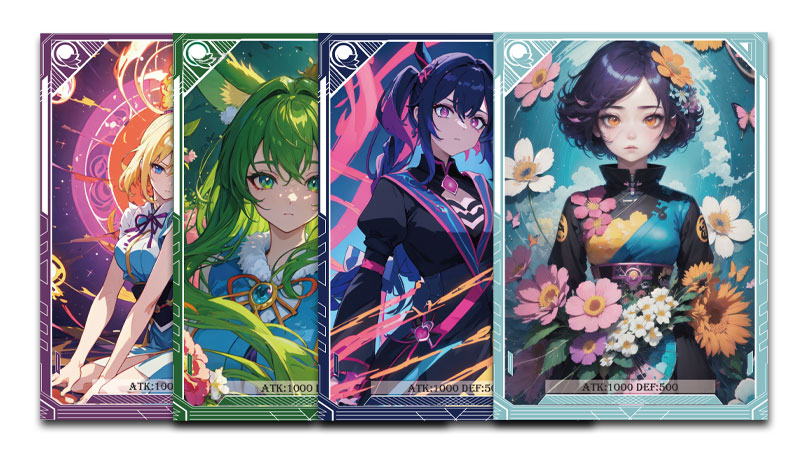
Market trends
The TCG market has seen consistent growth, driven by a combination of nostalgia, community engagement, and innovation. Digital adaptations of traditional TCGs have opened up new avenues for play, making these games more accessible to a global audience. Platforms like Magic: The Gathering Arena and Pokémon TCG Online provide players with the opportunity to play remotely, expanding the reach and appeal of these games. Additionally, the rise of streaming platforms like Twitch has created new spaces for community engagement and spectating.
Challenges
The market's saturation poses a potential challenge for new entries. Established giants like Magic: The Gathering, Yu-Gi-Oh!, and Pokémon dominate the scene, making it necessary to exercise real creativity and innovative strategies for indie designers to gain a foothold. Also, digital card games and mobile apps provide stiff competition, though they also offer opportunities for creative game design. One thing that's clear from the success stories we've seen is that producing an entire franchise to support your game, including comics or manga, an app, and a range of versions, is an excellent method to open the door.
Opportunities for indie designers
Crowdfunding platforms such as Kickstarter have revolutionized the TCG industry, allowing indie designers to bring their ideas to the table without financial risks. Successful campaigns for games like “Exploding Kittens” and “Unstable Unicorns” demonstrate the potential for innovative concepts to find an audience. Building a strong community through social media and local game stores is crucial for sustaining interest and engagement. Offering unique mechanics, themes, and storytelling can attract niche audiences and differentiate new games from established franchises. And don't be shy about leveraging digital platforms to create hybrid experiences that can appeal to tech-savvy players looking for new ways to engage with traditional printed TCGs.
Talk to us — we're here to help!
The trading card game industry offers a rich history and a dynamic present, filled with opportunities for aspiring indie designers. By embracing innovation, engaging with communities, and leveraging modern platforms, new TCG creators can carve out their own space in this vibrant market. The journey of creating a successful TCG requires passion, persistence, and a deep understanding of both game design and player engagement. As an aspiring designer, we think you should be encouraged by the diverse and evolving landscape, where creativity and community can lead to success.
At QinPrinting, we have over a quarter of a century of experience in the industry and as a world leader in offset printing with state-of-the-art technology, expert teams, insider knowledge, and a passionate commitment to personalized customer service, we can help you take your idea and transform it into a reality. While success can never be guaranteed, it makes sense to stack the odds in your favor. So, get in touch to talk us through your game plan and we'll explain what we can do to help.
Shoot us an email to [email protected] or call us at +1 951 866 3971 and we'll be delighted to discuss your needs.


